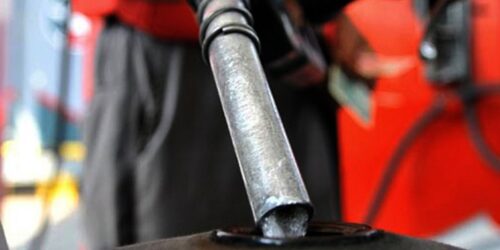The previous fiscal year was one of the most difficult periods for Pakistan’s oil sector. The oil and gas producers, oil refiners and oil marketing companies faced multiple challenges in 2020-21 such as the second and third waves of the Coronavirus pandemic, lockdowns, travel restrictions, economic slump and volatility in international commodity prices.
The business environment, however, started to get better from the second half of the financial year following the re-opening of the global economy. Pakistan also witnessed an improvement in trade and commerce activities. This was accompanied by a recovery in petrol and diesel demand. The increase in business and travel activities, growth in vehicle sales, rise in exports, and curbs on the flow of smuggled diesel from Iran helped push petrol and diesel demand higher. Total petrol and diesel offtake increased by 12 per cent and 17pc in 2020-21 to 8.2MT and 7.7MT respectively, as per data from the Oil Companies Advisory Council.
The furnace oil consumption, however, remained weak. Although the total furnace oil sales from oil marketing companies in Pakistan increased by around 50pc in 2020-21, this strong growth is due to the low base effect, given the numbers are being compared against 2019-20 when the fuel’s consumption fell to the lowest level in years. Overall, the total furnace oil offtake in Pakistan for 2020-21 came in at 2.9MT which is substantially less than 7.1MT seen in 2017-18.
Still, the jump in consumption of Pakistan Oilfields Limited products was enough to push the profits of some of the biggest energy companies higher. Byco Petroleum Pakistan Limited, a vertically integrated oil refiner, recently reported annual results for the 12 months ending June 30, 2021, in which the company swung to a net profit of Rs3.6 billion from a loss of Rs2.4bn a year earlier. The state-owned oil marketing company Pakistan State Oil (PSO) reported the highest ever profit of Rs29.1bn for the previous financial year as opposed to a loss of Rs6.5bn in 2019-20. PSO’s subsidiary Pakistan Refinery Limited booked an after-tax profit of Rs0.94bn, up from a loss of Rs7.6bn in the preceding year.
The business environment has improved further since the end of the fiscal year and the petroleum industry is experiencing a healthy trend of strong sales. However, the energy companies are still facing some headwinds. Another wave of the Covid 19 and the emergence of new, potentially dangerous variants are some of the biggest threats that can hurt the future performance of oil companies. On top of this, the industry continues to face the problem of the weak upliftment of furnace oil.
That being said, the oil companies remain firm in their resolve to enhance their operations while providing higher quality and more environmentally friendly fuels to customers. The oil refiners are planning to modernise their facilities. For instance, Byco Petroleum is already working on installing more than a dozen plants that will allow it to produce Euro-5 petrol and diesel. Meanwhile, PSO is spearheading the drive to upgrade fuel standards in the country by offering Euro-5 fuels to customers. The increase in domestic production of Euro-5 fuels will reduce Pakistan’s reliance on imported petrol and diesel, thereby saving the country’s foreign exchange.





